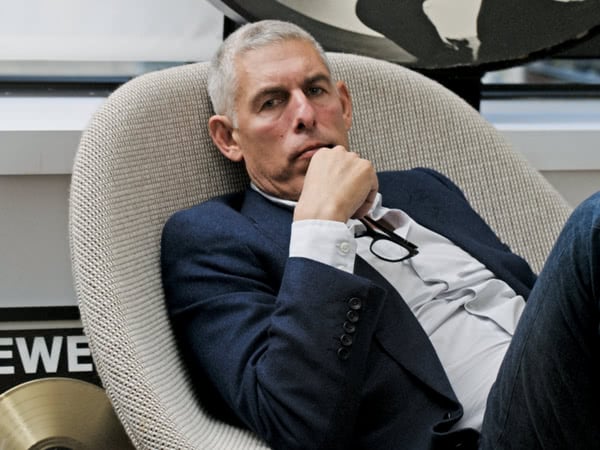Lyor Cohen details the time he almost sunk Def Jam Recordings with a debt of US$19M

Undoubtedly one of the most attended talks at SXSW so far, Lyor Cohen’s keynote filled four meeting rooms at the Austin Convention Centre, with another two reserved for a live stream.
The now Global Head of Music at YouTube/Google took the stage this morning (March 15) to take delegates through his storied career, from his time as a promoter in West Hollywood, to how he met and came to tour manage a young Run-DMC, became a label head and entrepreneur, almost sunk Def Jam, and the phone call which sparked his move to Google.
In typical Lyor Cohen fashion, the industry vet was joined onstage by DJ D-Nice, from hip-hop luminaries Boogie Down Productions (whom Cohen tour-managed in the ’80s). D-Nice soundtracked his stories using track snippets from the likes of Beastie Boys, Slick Rick, Redman, DMX, Sum 41, Fetty Wap and Camila Cabello.
In between anecdotes about his time as a club promoter and his first agreement with YouTube back in 2006 – where in exchange for the hosting of his acts’ clips he took a share in the company’s ad revenue – Cohen detailed his most distressing time in A&R.
“We would never have predicted that The Beastie Boys were going to leave Def Jam in 1988, Rick Rubin was not far behind,” he said. “We pushed on anyhow. That year we released Nation of Millions by Public Enemy and later that fall, Slick Rick.
“Rick left, The Beasties left. Russell (Simmons’) in California making albums… and then all of a sudden the majors started waking up and wanting their own action of rap music,” he added. “And they started competing with us.”
As Cohen recalls, there was a long time where he didn’t handle the throne at Def Jam too well at all.
“I started signing every bad act after another,” he says. “I lost so much money […] Think about it: Beasties leave, Rick Rubin the architect of Def Jam leaves, Russell goes to California, I start becoming responsible for the logo (of Def Jam) and this iconic brand, I start signings acts, one stuff after another. It couldn’t get worse.
“Do you remember The Afros, The Family, BWP (Bytches With Problems), I didn’t think so,” he joked. “It was really bad. I was scared.
“Then the majors started getting in and my new partner Columbia Records started competing with me. We were US$19 million in the red.”
Lyor Cohen said he was in the process of damaging the iconic brand by signing “one bad act after another”, when his luck changed. In 1994 PolyGram purchased Sony’s 50% stake in Def Jam and Cohen when on to sign Redman and Warren G. In fact, his first release under the new structure was Warren G’s Regulate, which went on to sell 4 million copies.
Watch the clip for Warren G’s Regulate below:
Later in the keynote Cohen addressed the sexual allegations made against Def Jam co-founder Russell Simmons.
“I want to acknowledge the awful allegations that have been made about Russell. We were roommates and we’ve stayed friends and partners ever since. I never saw him aggressive or violent with any women. It’s not the Russell I know. I’m deeply troubled with all the allegations, and there’s absolutely no room for this type of behaviour.”
Cohen also spoke of the phone call from YouTube’s chief business officer Robert Kyncl which sparked his move over to Google.
“[He said] ‘I need an artist advocate. Someone who will champion the artist and the industry’,” he said. “This was of course music to my ears, I really believe that YouTube and Google is (sic) critical to the music business ecosystem and that they are critical to the artists and the labels.”
Cohen says his focus at YouTube is now on “bringing diversity to distribution.”
“80% of watch time [on YouTube] is recommended by an engine,” he noted. “[…] The only place to play with commerce and direct to consumer is YouTube.”
His last statement is arguable (just ask Spotify) but with such a passionate industry figure who has thrived through multiple epochs at YouTube’s helm, artists are in good hands.
This article originally appeared on The Industry Observer, which is now part of The Music Network.






























